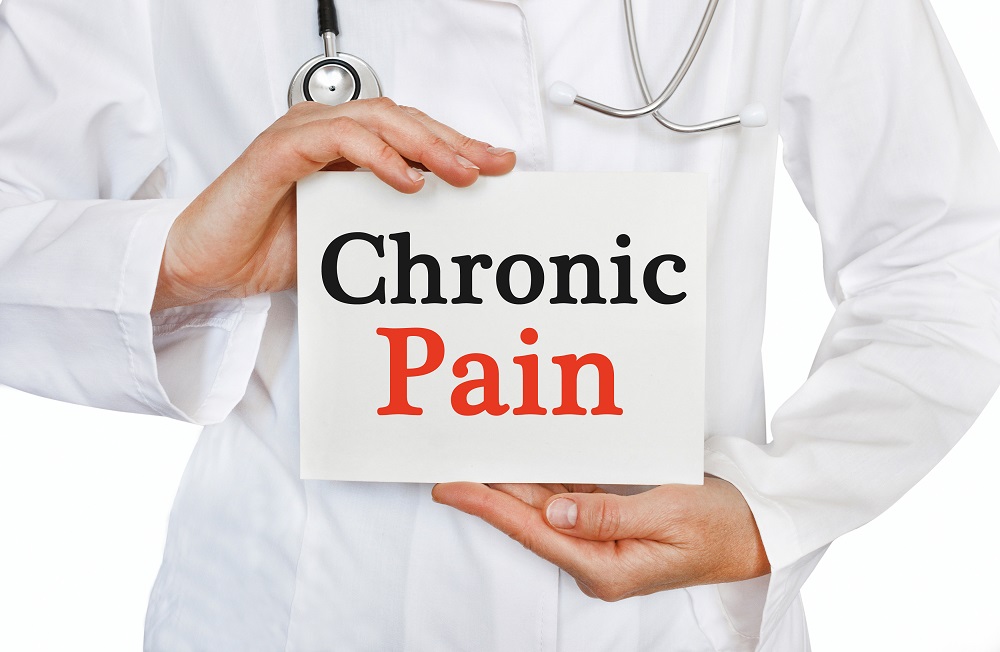
Whoever coined the saying “Pain of mind is worse than pain of body” probably never experienced chronic pain. Chronic pain can be caused by a number of factors – genetics, anxiety, injury, or disease; and in some cases, doctors might have difficulty discovering just what it is that is leaving their patients in peril. According to a National Health Institute study, 11.2% of all Americans suffer from chronic pain.
It’s important to understand the difference between acute and chronic pain. Acute pain is severe or sudden and can be attributed to something that you can pinpoint, for example, a surgery, illness, or accident. Chronic pain, on the other hand, is persistent – lasting for months and possibly longer. In many cases, physicians can go to great lengths to detect the root of this mysterious malady. It often takes patience and multiple visits to medical specialists before a diagnosis can be made.
One of the first steps to diagnosis is rating your pain. How we describe our pain can reveal a lot of valuable information to our physicians. Numerical ratings are sometimes used as a scale; in other cases, doctors may ask you to keep a journal or log of your pain, or to describe your pain in words. One famous verbal rating scale is known as the McGill Pain Questionnaire. All of these assessments are key factors in determining whether the cause of our discomfort is muscular or neurological in nature. There are many tip-offs, but pain that is described as having a burning, tingling, or “pins and needles” feeling leans toward nerve pain, whereas a tender, throbbing, or stiffness is indicative of muscle pain. For those who have trouble communicating, or exhibit mild cognitive impairments, tests such as Wong-Baker and Observer scales make assessments based on facial expression and heart rate.
According to a study published by the National Institutes of Health, there are over 30 years of research and evidence that verify the importance and validity of psychological assessment in chronic pain evaluation. Anxiety and depression often coincide with the incidence of chronic pain; in fact, in those experiencing chronic pain, concurrent depression occurs in up to 52% of those in pain clinics. It’s a vicious cycle, as depression can cause chronic pain, but chronic pain can also lead to depression.
Physical and neurological exams will delve deeper into the ratings test information collected previously. A comprehensive physical exam will allow your doctor to examine your strength and posture, as well as denote any abnormalities that could be the culprit of your chronic pain. Your physician will most likely check your balance, reflexes, and coordination, as well.
Blood tests are never a bad idea. Most people know the value of having their blood tested yearly for lipids, cholesterol, and so on. However, did you consider the role these factors are playing in your pain? Blood tests are highly valuable for ruling out causes of your pain that may have gone under the radar. Everything from vitamin deficiencies to autoimmune disorders can be validated with a simple vile of blood. Persistent pain in muscles and joints has been linked to a sluggish thyroid, while achiness coincides with a lack of Vitamin D.
If the abovementioned diagnostics point to nerve damage, there are a number of supplemental tests that can be administered. Measuring the speed at which an electrical impulse travels through your nerve, Nerve Conduction Velocity (NCV) tests are advantageous for diagnosing pain disorders such as Guillain-Barré syndrome, Carpal Tunnel Syndrome, and Sciatic nerve problems. Often used in tandem with NCV tests, Electromyography (EMG) involves the insertion of a needle into the muscle to record electrical activity. Electrical activity in a “resting” muscle is a sure-fire sign of a muscle or nerve disorder, or inflammation.
One thing is clear: there’s no one-size-fits-all approach to diagnosing chronic pain. Pain Specialists of Austin offers a comprehensive approach to diagnosis and treatment, and has the tools needed to tackle everything from spine disorders, to cancer pain management. For more information, call (855) 876-7246.